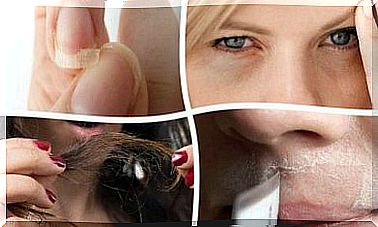3 Things You Should Know About A Passive-aggressive Person
If you are around a passive-aggressive person in your immediate surroundings, you should try to help them. Instead of walking away, try to find a solution to ease any frustration she may be feeling.

A passive-aggressive person actually suffers from a personality disorder.
Its main behavioral characteristics are continuous stubbornness, a provocative way of reacting to the demands of others, and a negative or even totally defeatist attitude towards life events.
Living with a passive-aggressive person is as complex as it is exhausting.
As is always the case with personality disorders, some people meet certain criteria, while others accumulate them all.
However, all so-called passive-aggressive personalities have an ability to manipulate others and build interpersonal relationships based on suffering and unhappiness.
You may be living with one of these people right now. Someone in your family or at work may be suffering from this destructive disorder.
If this is your case, you should know that there are coping strategies and psychological therapies that can help them stop this negative and hostile behavior, often caused by two very basic dimensions: anger and frustration.
In the rest of this article, we invite you to discover some essential aspects of this personality disorder.
1. What are the characteristics of a passive-aggressive person?
To begin with, we need to clarify something: Not all people who suffer from the disorder that we are going to talk about in this article exhibit all of the behaviors that we are going to detail.
However, a passive-aggressive person is distinguished by his ability to show hostility at all times.
To be more precise, they are able to harm others in a conscious way, while disguising their harmful behaviors as tenderness, when in reality they seek to humiliate, control or ridicule others.
Here are the basic characteristics of passive-aggressive people:
- They like to criticize others. No reality, no human being and no situation can escape a good critique from their point of view.
- When we get to know them well, we find that they are often unpleasant and irritated by something.
- However, when they expect something from others, they don’t hesitate to be kind, attentive and warm.
- They quickly forget certain things so as not to take responsibility for them.
- Never finish what they start.
- Are cynical.
- They demonstrate a formidable ability to blame others, even if they are responsible.
- Present themselves as victims, as devalued, as unhappy …
- Hate all forms of authority.
- They reject the suggestions of others.
2. What is behind these personalities?

This is often the first thought we have: why do they act this way if, in the long run, they will only feel frustration and build wobbly relationships?
Here are some avenues for reflection on this subject:
- Typically, these are people who have been raised in families who do not make dealing with emotions a priority.
- They never learned to channel their frustration or let go of their anger.
- They have very low self-esteem.
- Gradually, they realized that by controlling others and taking a position of power, they could cover up their own shortcomings.
- They also realized, at some point in their lives, that being kind or tender could get them what they wanted.
- They don’t know how to deal with their negative emotions. Failure to do so intensifies their anger and the feeling that the world is unfair. They think they are misunderstood people.
3. How to treat a passive-aggressive person?
It is quite possible that the first thing we want to face with a passive-aggressive person is to run away.
We have to tell you straight away that this is not the right attitude for several reasons.
The first is that we ourselves may be in this situation. The second is that we don’t always have to run away from something that scares us or that seems too complex to us.
Understand
- The first thing we need to do is understand. Understanding the basics of this disorder can go a long way in helping us deal with it.
- We must then avoid giving in to the control exerted by the person in front of us. You have to explain to him the consequences of his actions and tell him that his behaviors are not good, or even that they are not logical.
- We cannot forget that what feeds a passive-aggressive person is their low self-esteem. She is therefore above all afraid of finding herself alone.
Do not give in
You have to be assertive, set limits, be reasonable. But it is also necessary to suggest other behavioral options to the person in front of you.
- If you talk to me cynically, I wouldn’t trust you. You have to respect me.
- If you are so negative, you will end up isolating yourself in your own fears.
- Instead of always focusing on my flaws and criticizing me, you should try to see the good sides of me.
Offer professional help
A passive-aggressive person suffers from feelings of inferiority, immature management of their emotions, and very low self-esteem.
No one can be socially or emotionally balanced with such deficiencies, such limitations. That is why you should advise him to seek professional help.
Cognitive behavioral therapy can be of great help.
It is necessary to keep in mind that a passive-aggressive person is not sick. She thus wears unfriendly armor and behaves in a manipulative manner. He is above all a fragile person who needs to be helped.
We must help him find the path to well-being. This can include therapy, which could change his life completely and make him happy.
Main image © wikiHow.com









